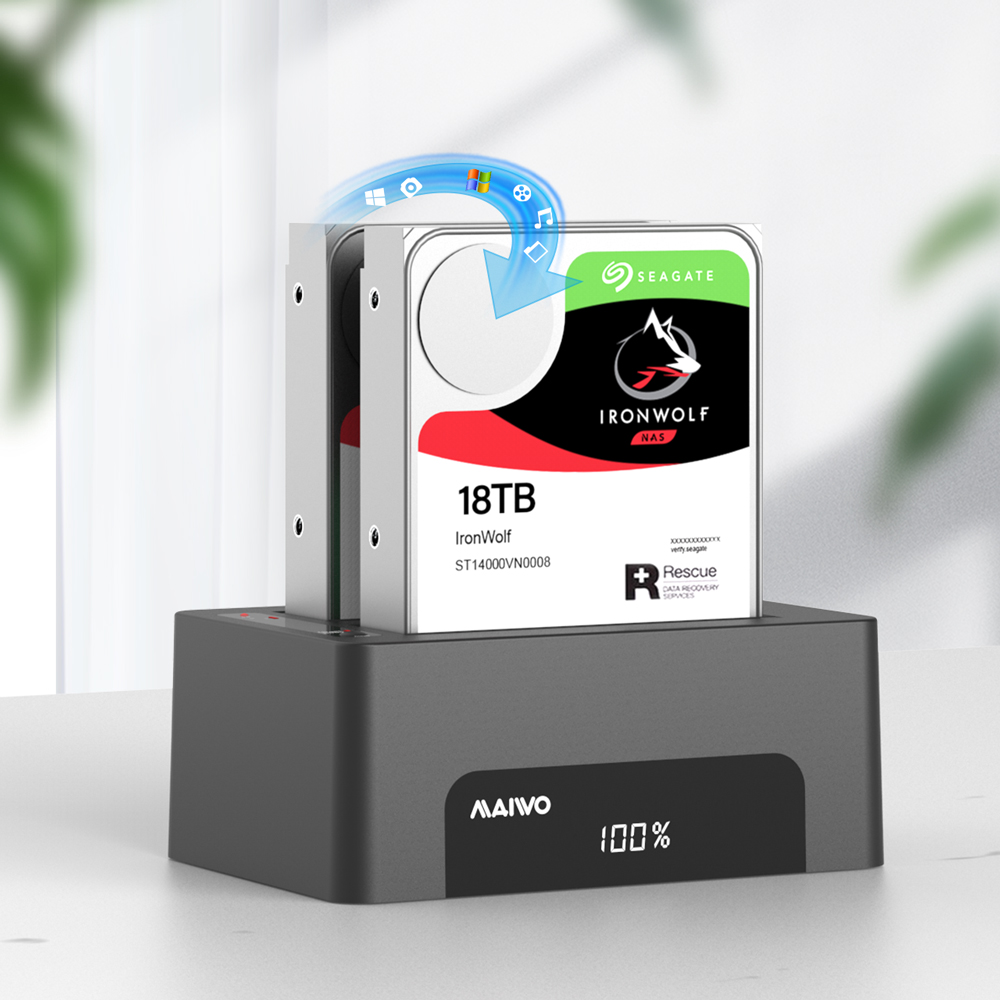Hard drive docking stations have become invaluable tools for professionals and enthusiasts alike, offering convenience and versatility in managing storage devices. With the rise of solid-state drives (SSDs) as preferred storage solutions, a common question arises: are hard drive docking stations compatible with SSDs? In this article, we'll delve into the compatibility of SSDs with docking stations, explore the benefits, and address any considerations users should keep in mind.
Before diving into SSD compatibility, let's briefly understand what hard drive docking stations are. A hard drive docking station is a device that allows users to connect internal hard drives or SSDs externally to a computer or other device. It typically consists of a docking bay or slot where the drive can be inserted and connected via various interfaces such as USB, eSATA, or Thunderbolt.
Compatibility with SSDs
The good news is that the majority of hard drive docking stations on the market are compatible with SSDs. Whether you have a traditional spinning hard disk drive (HDD) or a modern SSD, you can typically use a docking station to connect it to your computer for data transfer, backup, or other purposes.
Benefits of Using SSDs with Docking Stations
Speed:
SSDs offer significantly faster read and write speeds compared to traditional HDDs. When used with a compatible docking station, users can take advantage of these high speeds for rapid data transfer, backups, or file management tasks.
Portability:
SSDs are known for their compact and lightweight form factor, making them ideal for portable storage solutions. Pairing an SSD with a docking station allows users to easily transport and access their data across multiple devices without the need for bulky external enclosures.
Reliability:
SSDs have no moving parts, unlike HDDs, which are susceptible to mechanical failure. By using an SSD with a docking station, users can benefit from increased reliability and durability, reducing the risk of data loss due to hardware malfunctions.
Flexibility:
Docking stations provide flexibility in terms of connectivity options. Whether you prefer USB, eSATA, or Thunderbolt connections, there's likely a docking station available to suit your needs. This flexibility allows users to connect SSDs to a wide range of devices, including laptops, desktops, and even some mobile devices.
Ease of Use:
One of the primary advantages of docking stations is their simplicity and ease of use. With a docking station, users can quickly and easily connect or disconnect SSDs without the need for tools or technical expertise. This plug-and-play functionality makes docking stations an accessible solution for users of all skill levels.


Considerations for SSD Usage
While SSDs offer numerous benefits when used with docking stations, there are a few considerations users should keep in mind:
Interface Compatibility:
Ensure that the docking station you choose supports the interface of your SSD (e.g., SATA, NVMe). Some docking stations may only be compatible with specific interfaces, so it's essential to verify compatibility before making a purchase.
Power Requirements:
SSDs typically consume less power than HDDs, but it's still important to ensure that the docking station provides adequate power to the SSD for optimal performance. Some SSDs may require additional power via an external adapter or USB cable, so be sure to check the power requirements of your SSD and docking station.
Data Transfer Speed:
While SSDs offer faster read and write speeds compared to HDDs, the actual data transfer speed may be limited by the interface and specifications of the docking station. Be sure to choose a docking station with high-speed interfaces (e.g., USB 3.0, Thunderbolt) to maximize the performance of your SSD.
In conclusion, hard drive docking stations are indeed compatible with SSDs, offering users a convenient and versatile solution for managing their storage needs. Whether you're looking to transfer data, create backups, or access files on the go, pairing an SSD with a docking station provides numerous benefits, including speed, portability, reliability, flexibility, and ease of use. By considering interface compatibility, power requirements, and data transfer speed, users can harness the full potential of SSDs with docking stations for seamless storage management.